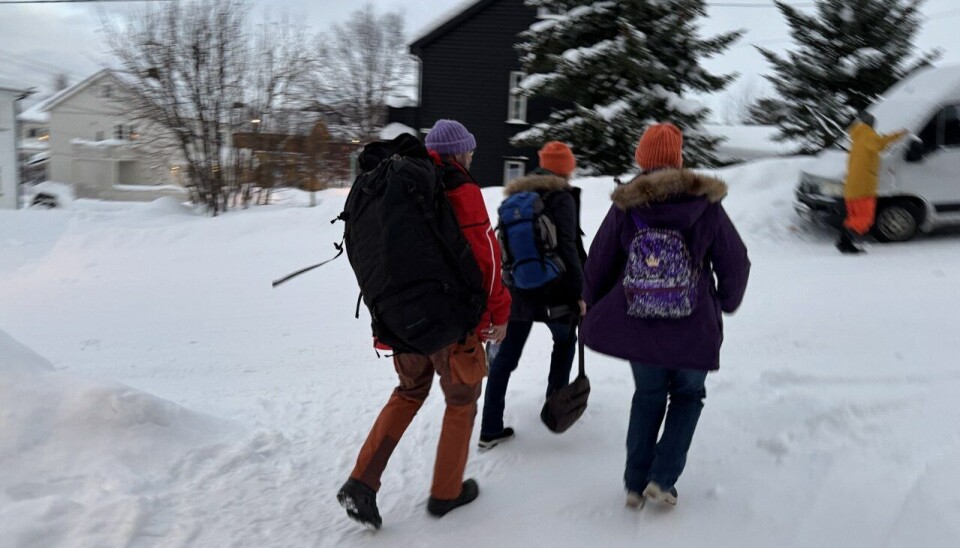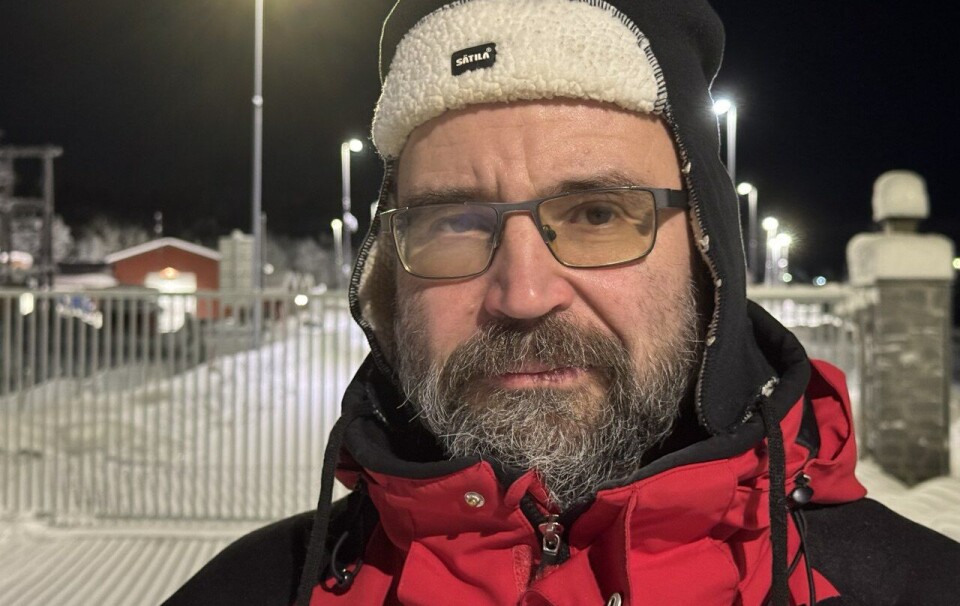
840 days apart
Carpenter and anti-war activist Sergei Filenko was the first to be fined for 'discreditation of the Russian army' in his home region of Karelia. He now actively supports the Ukrainian Army from his exile in Finland. After more than 2 years apart, he was reunited with his family.
“When does the border close? Sharp three? In twenty minutes?!”
The carpenter from Karelia, Sergei Filenko, is in Kirkenes, Norway, nine kilometres from the border to Russia, which is about to close for the night. Filenko keeps looking at his phone, waiting for a call or message. A driver who is bringing Sergei’s wife and daughter from Russia is supposed to contact him — but the call still hasn't come.
This tall, strong, slightly stern man has not seen his family for more than two years. Carpenter, publicist, and activist from the Russian city of Petrozavodsk, Sergei Filenko, received political asylum in Finland in August 2023; he went there after being fined twice for "discrediting the Russian army". However, even before the full-scale invasion in February 2022, Sergei Filenko opposed Putin's policies, doing so selflessly and vividly.
Hedgehog in the North
Filenko has many professions. By education, he is a biologist; he met his wife, Yulia, at courses for tour guides — and made a living from it; Filenko is a good writer, his stories about a solo snowshoe journey won a prize from the Union of Journalists of Karelia. But his main profession is a carpenter.
Filenko spent most of his life in northern Russia. He came to Karelia from the city of Severomorsk, where he spent his childhood.
“Gloomy polar nights, naval officers in white scarves... When a strong wind blows from the bay, sometimes it blows off their caps, and they roll away. If it's a regular black one with a white band, it rolls with the white band over the frozen mud; if it's a ceremonial white one, it somehow falls flat, white side down, into the mud.”
When Sergei was serving in the army, an incident occurred that he remembered for the rest of his life and in which he now sees a reflection of his own fate.
“I was a radio operator in Mozdok with TU-95 bombers. I decided to take a shortcut across the runway and saw a hedgehog crushed by the wheel of a strategic bomber. I was young, with glasses, and a thin neck; and I felt so sorry for this hedgehog! It had nothing to do with the Cold War, the arms race, or all this nightmare… And I broke off the hedgehog's paw, put it in alcohol to mummify. I still have it.”
Many years later, Sergei Filenko will bring this paw to court in the case of “discrediting” the army — the first in Karelia. But the hedgehog's leg - presented as a symbol of Sergei being crushed by a military machine, did not move the judge. The judge fined him for 30,000 rubles (€290)
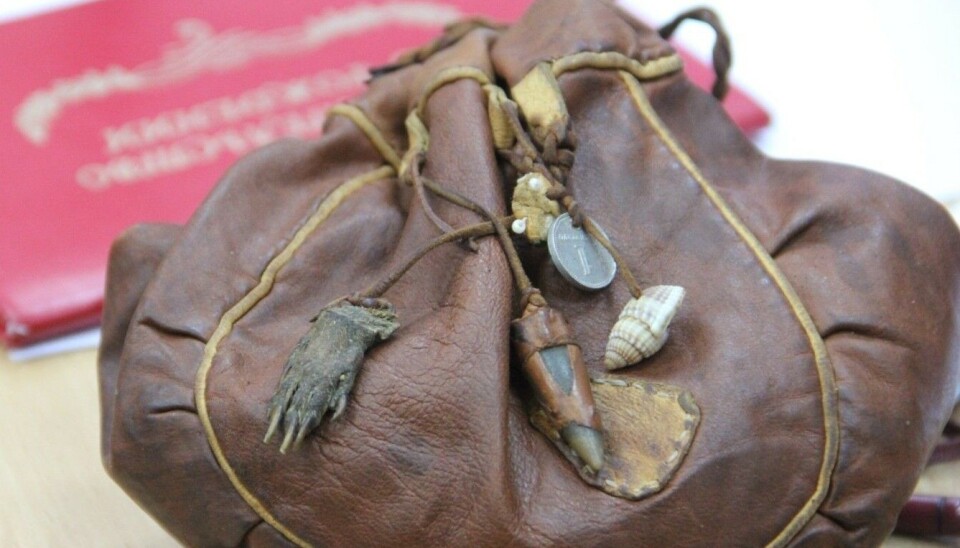
Upon returning from the army, Sergei was offered a simple job — transporting vodka from Saint Petersburg to Murmansk. He refused — "it's unethical to trade vodka, people die from it" — and instead enrolled in the biology faculty in Petrozavodsk. His classmate happened to be Ruben Poghosyan — the only person in Karelia who in April 2024 was imprisoned for anti-war statements.
Sergei recalls the years of freedom — and how they ended. For him, as for many, the turning point was the sinking of the submarine "Kursk" in August 2000 and the reaction of the new president back then — Vladimir Putin.
"I saw a smirk — 'It sank,' — heard his words about the widows... If it were a movie, at this point there should have been ominous eerie music playing, suggesting to the viewer that the horror has begun."
Sergei Filenko fought the impending horror as best as he could. He often participated in anti-government protests, opposed the governor, supported the last elected mayor of Petrozavodsk, Galina Shirshina, and stood in pickets in defense of the researcher of Stalin's purges, Yuri Dmitriev.
He also attended rallies in support of late opposition leader Alexei Navalny. One of the rallies made Sergei Filenko famous throughout the country, albeit briefly.
On that day — April 21, 2021 — the weather in Petrozavodsk was terrible. Wet snow was falling from the sky, and the main square of the Karelian capital was covered with icy slush. Filenko stood on the pedestal of the Kirov monument, holding a sign that read "Russia will be happy." The youth surrounding him sang songs and joked about the police. Suddenly, a signal sounded — and detentions began.
The first one they grabbed was Filenko. Four policemen grabbed him by the arms and legs and dragged him to the police van. A journalist from the local newspaper “Guberniya” was quicker than everyone else and captured how the carpenter, in the hands of the police, was shouting something at the top of his lungs. These were the words of Rudyard Kipling's “If.”
“I was only thinking about not disgracefully forgetting the text,” recalls Filenko four years later. “But it all ended quickly. They dragged me, sat me down in the wet snow near the police van. I resisted, declared that I wouldn't get on the bus. One of the National Guard officers began to weakly twist my arm, and I agreed to go inside.”
The video quickly spread across social media; on that day, more than 1,700 people were detained in the country, and Filenko after reading out the “If” became one of the symbols of resistance to repression. But neither the protests nor the poems helped: Alexei Navalny remained in custody, and in 2024 he was killed in a colony beyond the Arctic Circle.
“We, all the people, could not help him in any way. This is the murder of a hero of ancient, biblical scale among our worthless contemporaries — it is both grief, and rage, and extreme contempt that we all turned out to be petty and worthless,” says Filenko, standing by the memorial to Aleksei Navalny in Kirkenes.
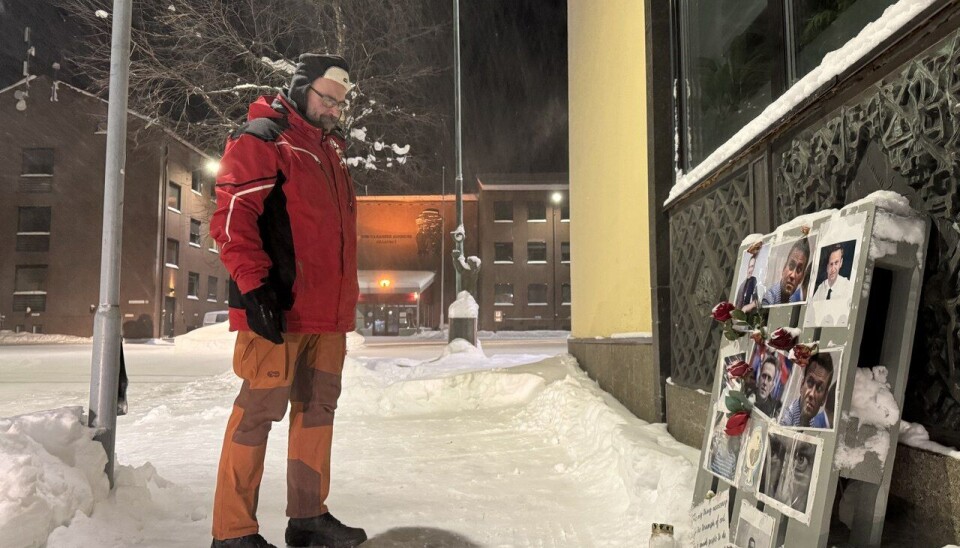
The memorial is installed directly opposite the building of Russian Consulate General. Seeing the tricolor Russian flag above his head, Filenko frowned.
“When the coup happened (in August 1991 — ed.), I found some signal maritime flags at home — this was in Severomorsk — and I sewed a tricolor flag from them, and hung it out of the window. So it was a flag of freedom — instead of the bloody red. And now this flag is also associated with vileness.”
War. Court. Tears
On February 24, 2022, Sergei Filenko was in Moscow. Upon arriving in the capital, he went to the Paleontological (Natural History) Museum, which he had never visited and had long wanted to see. The phone was turned off — Sergei was saving the battery life.
“From the station, I noticed how people constantly talked about 'war, war...' I ignored it. At the museum, I sat on a bench next to the skeleton of a dodo bird, which was wiped out during the age of great geographical discoveries. I sat down and opened the news. It hit me like a club over the head, I couldn't comprehend anything.
In the evening, I went to Pushkin Square, where everyone had already been dispersed and they wouldn't even let us stand still. Three people approached, demanded my passport. They looked and said, 'Oh, from Karelia!' Yes, I said; yesterday I left for the capital of my Motherland, and today I arrived in the main city of the occupying country...”
In Petrozavodsk, where Sergei returned a week later, people protesting against the war were also not even allowed to gather.
“We just started approaching [the main city square] — without slogans, without campaigning, without anything, just people. “Hello, you’re probably here not for nothing?” — “Yes, we’re here not for nothing…” Three minutes later, the police ran out, surrounded everyone, pushed us into a bus, and that was the end of it,” recalls Filenko.
Two months after the start of the full-scale invasion, Sergei Filenko was fined for “discrediting” the army. He was the first in Karelia to be held accountable under this law. Filenko came to court with the paw of a hedgehog crushed by a bomber and compared his fate to that of the animal — a victim of the military machine. Filenko was fined 30,000 rubles.
The second administrative case followed two months later. Filenko again did not come to court empty-handed. This time he brought 324 glass marbles — symbolising to the number of children who had died in the war in Ukraine by that time.
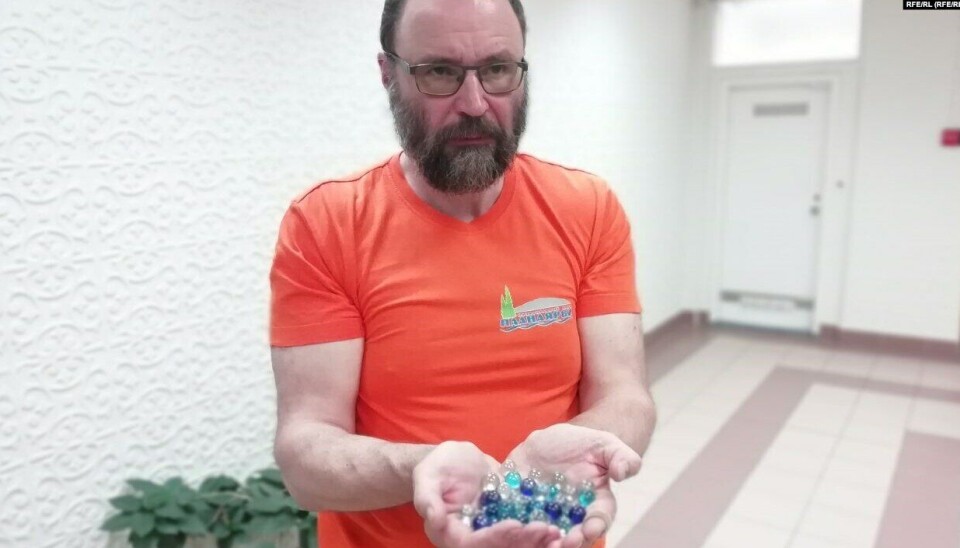
“I was buying something in the craft shop for my daughter and saw bags of glass marbles. An image came to mind — a child's teardrop... At that time, the number of children killed in Ukraine was often published. And I bought these marbles. And as the case went to court, the number grew, and I had to buy more. I cried over them...”
The bailiffs, inspecting items at the court entrance, did not confiscate the strange load, and Filenko brought the marbles to the hearing and took them out during his speech. The plastic bag wouldn't untie, so the carpenter tore it open — and three hundred marbles clattered to the floor in front of the judge and scattered all over the room.
“The judge had a poker face. It didn't touch her at all; she just said, 'You'll collect them later.' And the court secretary exclaimed during the break, while we were collecting the marbles: 'Oh, it was so dramatic. And look, I found three more marbles, they rolled away!'”
Walking around Kirkenes, Sergei Filenko talks a lot about human nature. For example, he doesn't understand Russians who support Putin and the war. He often compares what is happening to a zombie apocalypse, and the supporters of aggression to cannibals.
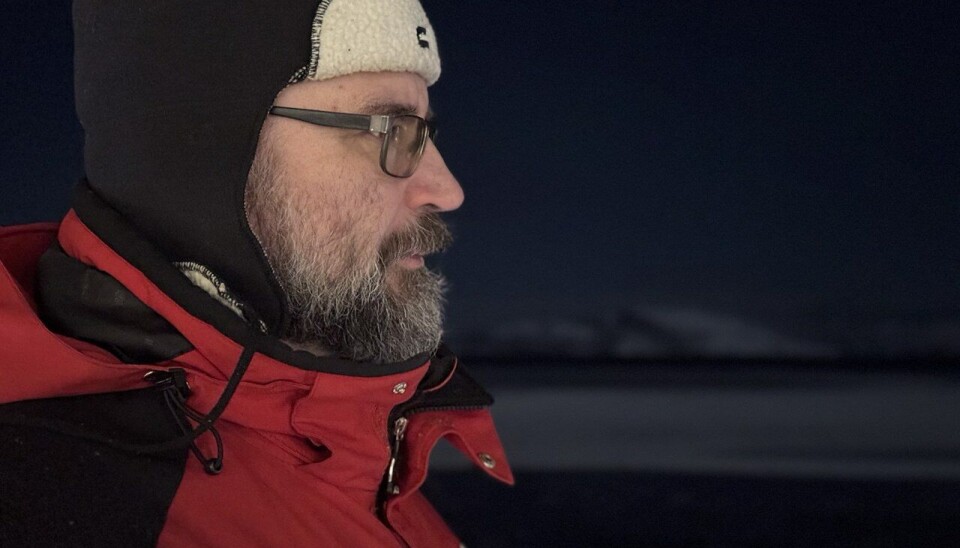
“Imagine that cannibals have taken power in the country,” the carpenter reflects. “And there are active cannibals who happily kill and eat other people. And the rest just come to the store, and instead of chicken and pork, human flesh is sold. In cans. And people seem not to kill themselves, but calmly eat it. 'Well, we're not vegans...'
My best friend, a classmate, who was an officer of the Northern Fleet, and then he became an Orthodox priest. And my last question, after which all relations completely ceased — in March 2022 after the invasion: 'What do you talk to God about after February 24?' And he did not answer me.”
"You're screwed"
Sergei Filenko initially did not intend to pay fines, that a court ordered him to pay for participation in anti-war protests, because these money would be spent by the Russian state on making bullets. He was preparing for prison, but he still didn't want to go there — and so he paid the fines to the state, "squeezed", in his own words, "from weak carpenter's hands". However, even this Filenko managed to turn into an anti-war protest.
“Part of the fine from carpenter Sergei Filenko”; “I forbid spending on war and Putin's lackeys!”; “Not a penny for war and Putin - I allow spending on good deeds” — such inscriptions Sergei put on five-thousand ruble bills and took them to the bank. He was afraid that the cashier would call the police. No one called the police, but the photos of the bills on Facebook made Filenko famous again.
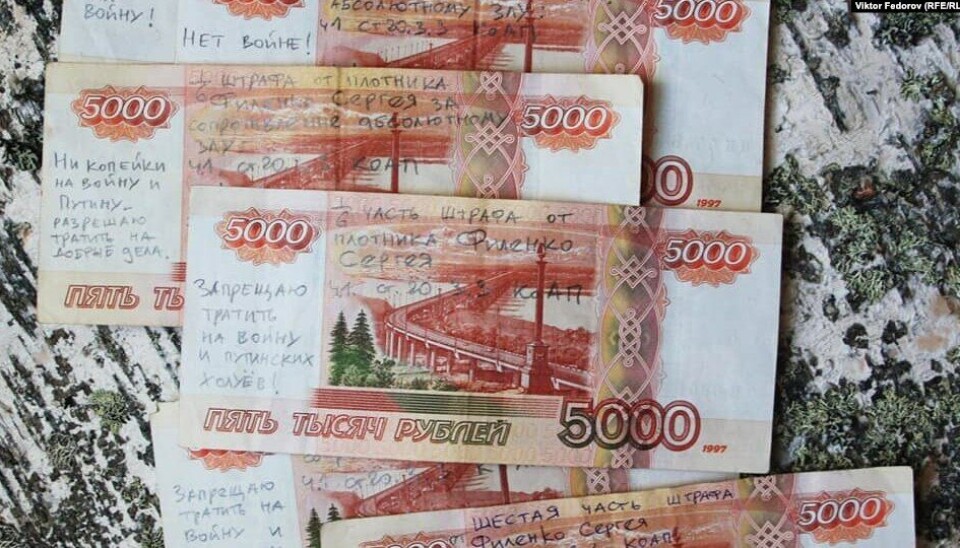
“I was running errands in the city, returning home, and there was my wife: “I saw it in the news, you're screwed!” If I had ears like a cat, I would have lowered them in fear at that moment. And I really started to be afraid.”
Despite the real threat of a criminal case, which could have been initiated after the second fine, Filenko remained in Russia. “Not everyone gets imprisoned, and even if they do, I'll live through the sentence and tell how it was,” the carpenter replied to suggestions to leave Russia. But on the night of 26 September 2022, shortly after the announcement of mobilisation, there was a knock on his door. It wasn't the police or a military officer, but a deadly frightened friend named Roman. Roman had left for Finland the day before; he crossed the border, felt homesick, and immediately rushed back. And upon arriving home, he saw a draft notice in the door. And he ran to Sergei.
“We sat all night. I mocked him: like, now they'll come here with a search warrant to arrest you for your anti-war stance, and here you are, and they'll take you straight to the army... In the morning he says: let's leave. And I was already scared. We talked in the kitchen about how the Jews also didn't fully understand what a terrible death was waiting for them in Germany. And even after the Night of Broken Glass, many remained...”
Sergei decided to leave. He hugged his wife Yulia and daughter Mary, who was 12 at the time. A friend urged him to remove the "No to war" sticker from his passport cover. Filenko refused: "Whatever comes my way."
"They stopped me at the border. They held me for more than three hours. I sat in a small, shabby office. "Do you believe that Navalny was poisoned?" a sly guy in a beige frock coat asked me. I don't believe, I know! Read about it, I said... "And what's you opinion about..." Just type my name and surname on the internet, and you'll immediately find out about my opinion! I was bold and defiant. Finally, a customs officer came with both of my passports and said that I could go."
More than two years later, Filenko approached the border again, only much further north and from the Norwegian side. Seeing the checkpoint, the carpenter muttered: "Help..."
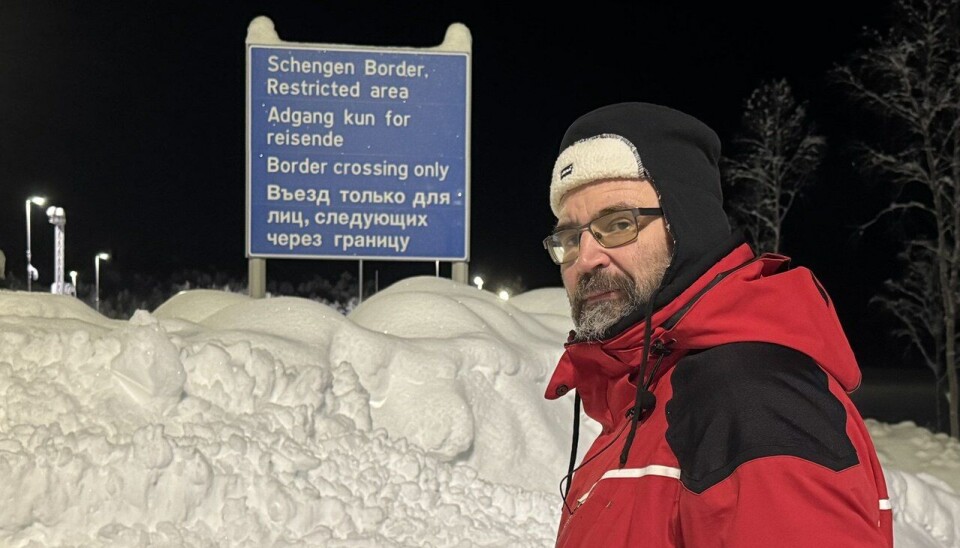
“This is the closest approximation to an evil empire. But before that, there was such a moment: in Finland, I went to the shore of a lake with a friend, and he tells me — “Over there, two hundred meters away, is Russia.” I instinctively stepped back and said: let's go somewhere else.
It's amazing how a person can be brought to the point where they shy away from their own native country! It's like a duckling that hatched from an egg, saw its mother duck, and suddenly doesn't perceive her as a native, safe, and beloved creature...
No nostalgia, strangely enough. But now I look at the border and think: tomorrow my wife and daughter will come from there to stay — the most valuable things that were left there. And they will now be living with me in Finland.”
Inscriptions for Memory
In Finland, Sergei Filenko quickly returned to his carpenter craft. With his first salary, Filenko transferred part of the money to the Armed Forces of Ukraine.
“I paid for an inscription on a 155-millimeter Ukrainian shell: “To Russian occupiers from a Russian carpenter,” it read.
"And since then, everything that remains after sending money to my family and simple food for myself, I spend on weapons for Ukrainians and help for Russian opposition," he says.
"I think it's right. Instead of sitting in prison, the money that I earn here maybe will help save the life of at least one defender of Ukraine and maybe help kill one more occupier. Donations to the Ukrainian army are the best thing I can do in my situation. Back in Russia my words had value, because I paid a price for them. Here my words are worth nothing.”
After a year of waiting, Sergei Filenko was granted political asylum in Finland. It took another year to arrange a residence permit for his wife and daughter.
It was like I had died and was watching how everything goes on after me. The family is coping, the country is rolling into the abyss in its own way. But even before I was granted asylum, I managed to repair the first sauna. And this somehow uplifted my spirit — that if I have to leave somewhere else, something good will remain in Finland after me. And in a hundred years, they will restore this sauna, and there, on the new logs, in the groove, they will find the inscription: “Carved by the refugee carpenter from Russia Sergei Filenko, Putin is a dickhead, I hope you are not as ugly as we were.”
Sergei lives in southern Finland, and the drive to Kirkenes took him almost 20 hours. But he had to go — he wanted to meet his family as soon as possible.
“I would have been exhausted from waiting. I'm afraid that something will go wrong at the last moment."
Meeting
19 minutes before the checkpoint closed, a message came from the driver: they crossed the border. Sergei Filenko maintains a calm face, but admits — inside he is boiling. Finally, a minibus arrives, from which his wife and daughter appear. They haven't seen each other for 840 days.
“We simply have a wonderful strong family, and I always comforted Seryozha (nickname for Sergei in Russian - ed.) Inner calm, confidence... And all the things that happened, and how Seryozha ended up in Finland — it's all supernatural. It's God's protection — that a good person like him didn't end up in prison. We went through this path, everything is fine,” says Yulia, Sergei's wife.
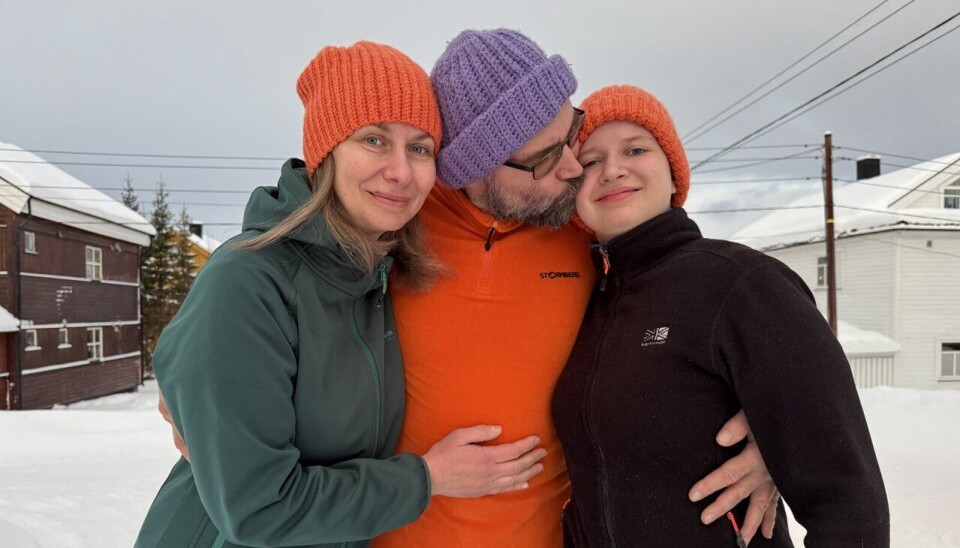
Yulia is calmer than her husband. She does not condemn her compatriots, including those who support the war.
“Many people are sincerely mistaken. You won't break them like that. We have a friend who organise a group of women that prepare freeze-dried products for the Russian fighters. She does it sincerely, but at the same time, she respects Sergei and his choice. And she was worried that my husband, whom she knows well, is far away. I really like such people; the worst is when someone simply labels you and your whole family as traitors to the homeland," she says.
"People behave differently. Some, even among relatives, turned away, like during Stalin's time in the 1930s. Not just from me, but even from my father! Some relationships have been completely destroyed.”
Yulia argues that she is not emigrating, but rather “expanding geography.” She will visit her homeland: her elderly father remains in Russia. Faith in God helps her to take things more confidently. Sergei is an atheist, but at the moment of the meeting in Kirkenes, he too seemed ready to thank God for this day.
“I felt like Robinson Crusoe, standing on safe, solid ground, but behind me, not a ship, but the whole country is sinking. And this horror is in my eyes, and the hope that my wife and daughter will come ashore,” says Sergei Filenko, recalling hundreds of days of separation.
"The only thing I was not ready to lose from everything I had gained in 52 years in the country was my family. But a long time ago, Yulia and I talked in the kitchen: if I do not say and do what I think is necessary, then when all this is over, there will be a drinking, conscientious person next to you, crushed by guilt. I do not consider myself a brave person. On the contrary, you could say that I am driven by fear that if I do not do something, I will despise myself, and it is scary to remain in such a state. Blessed are those who don't have to go through it all, but I can't remain silent.”
